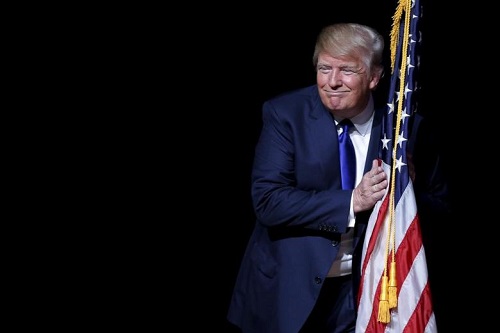Reuters photo
By
Tom Arms
Patriotism: Good. Nationalism: Bad. At least that is how it reads in my political lexicon.
Patriots love their country. They love the land and the sky, the people, the culture, the history and the values. If necessary, they are prepared to die for their country.
Nationalists feel all the above, but then take it a step too far. Sometimes several steps. And therein lies the problem. Nationalists (in my political lexicon) believe that their country is better than other countries, that it and their fellow citizens are superior to other countries and their citizens.
Sometimes that sense of superiority is applied not to national identities but to race or religion, such as White nationalists, Black nationalists or Islamic nationalists. But whichever vehicle they use, nationalists carry a strong sense of entitlement based on their nationality, colour or beliefs. And, if they are superior to others, then it must follow that whomever the others are, they must be inferior.
That is why nationalism is bad.
European colonialism was bad because it was at least partly based on the belief that Europe was bringing a superior civilisation to a barbarian world. Colonialism was a form of European-wide nationalism. In fact, much of the world that Europe viewed as barbaric had enjoyed the fruits of civilisation centuries before anything approaching civilised structures were even thought of in France, Britain or Spain.
Nazi Germany was the ultimate expression of nationalism. It encompassed race, language and culture, It claimed ultimate superiority for the German state and German race and used that assumed superiority to wage genocide and set out to subjugate the rest of the world.
Except for a handful of detestable Neo-Nazis, the philosophies of Nazi Germany are now accepted as a blot on the history of mankind.
Nationalism was the centuries-long cause of a European history consisting of one war after another. The EU is one of the ultimate expressions of anti-nationalism. It was the post-war brainchild of French politician Jean Monnet. He hit upon the brilliant idea that European wars could be eliminated if the European countries were economically interdependent.
It worked. And the EU became a blueprint for the benefits of an expanded version called globalisation. For example, In 2002 India and Pakistan were on the brink of a nuclear war. Secretary of State Colin Powell was finding it difficult to broker a deal. Then Western multinationals stepped in. India had become the outsource destination for many large businesses in Europe and America. They made it known that if there was a war between India and Pakistan, they would have to move their outsourced operations elsewhere. India backed down.
China is a communist country. But its economy is run on free market lines because the Chinese have been given a stake in the free markets of the world. That is why—by and large—they are not rocking the world political boat.
The United States was one of the original anti-nationalist national states. Woodrow Wilson was the brains behind the first attempt at a global community—the League of Nations. Unfortunately it failed because of American isolationism, which, by the way, is a handmaiden to nationalism because a corollary of nationalism is that you are so much better that the rest of the world that you don’t need to be part of it.
After the Second World War, the world was remodelled through the eyes of Franklin Roosevelt. The UN, Bretton Woods, and the World Bank were the result of his imagination. The Marshall Plan sprang from the belief that a strong and prosperous Europe would benefit America and the rest of the world.
Now the United States has fallen victim to what Senator John McCain called “some half-baked, spurious nationalism cooked up by people who would rather find scapegoats than solve problems.”
‘America First’ implies that the rest of the world is second at best and advances the win/lose theory of international affairs, when the practice of win/win has proven itself a source of peace and prosperity.
Tom Arms is the editor of LookAheadnews.com. Sign up now for the weekly diary of world news events.
LookAhead Radio World Report for week commencing 23 October 2017:
Audio Player
Tom Arms
I am a journalist, entrepreneur and historian with extensive experience in print, web and broadcast journalism. I started as a diplomatic correspondent, wrote several books (The Falklands Crisis, World Elections On File and the Encyclopedia of the Cold War), and then in 1987 started my own business (Future Events News Service, www.fensinformation.com) which over 25 years established itself as the world and UK media’s diary. Our strapline was: “We set the world’s news agenda.” I sold FENS in December 2012 but retained the exclusive broadcast rights to all of FENS data. To exploit these rights I set up LookAhead TV which produces unique programmes which “Broadcasts Tomorrow Today” so that viewers can “Plan to Participate.” LookAhead has appeared regularly on Vox Africa, Radio Tatras International, The Conversation and Voice of Africa Radio.
In addition to being a syndicated broadcaster and columnist on global affairs, Tom is also available for speaking engagements and can be contacted on Twitter, Linkedin and email: tom.arms@lookaheadnews.com.



No Comments Yet!
You can be first to comment this post!